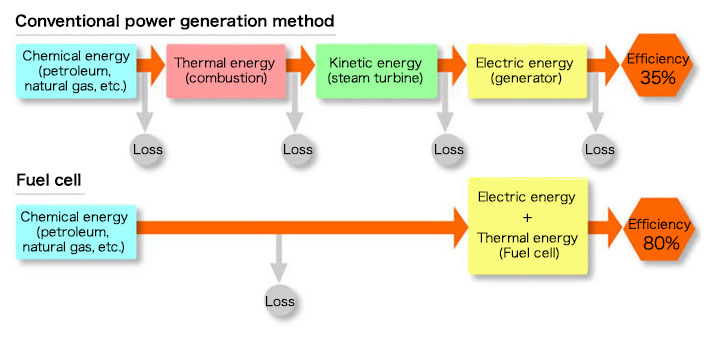Fuel Cells
Fuel cell features
Fuel cells provide high-efficiency power generation!
Fuel Cell Features
The world primarily relies on finite fossil fuels, which contribute to CO2 emissions and global warming. In contrast, fuel cells offer a highly efficient and eco-friendly power generation solution.
<Why Are Fuel Cells More Efficient? >
Traditional power plants burn fossil fuels to generate steam, which drives a turbine to produce electricity. This multi-step process leads to energy losses at each stage. In contrast, fuel cells generate electricity directly through a chemical reaction, significantly reducing energy losses and increasing efficiency. Traditional power generation: Efficiency ~35% (due to transmission losses). Fuel cells: Efficiency up to 80% (with heat recovery). Low Environmental Impact Fuel cells use hydrogen as fuel, producing zero CO2 emissions, making them an environmentally friendly alternative to conventional fossil fuel-based power generation.

<Low environmental load>
Fuel cells use hydrogen as fuel, meaning no carbon dioxide (CO2) emissions.
